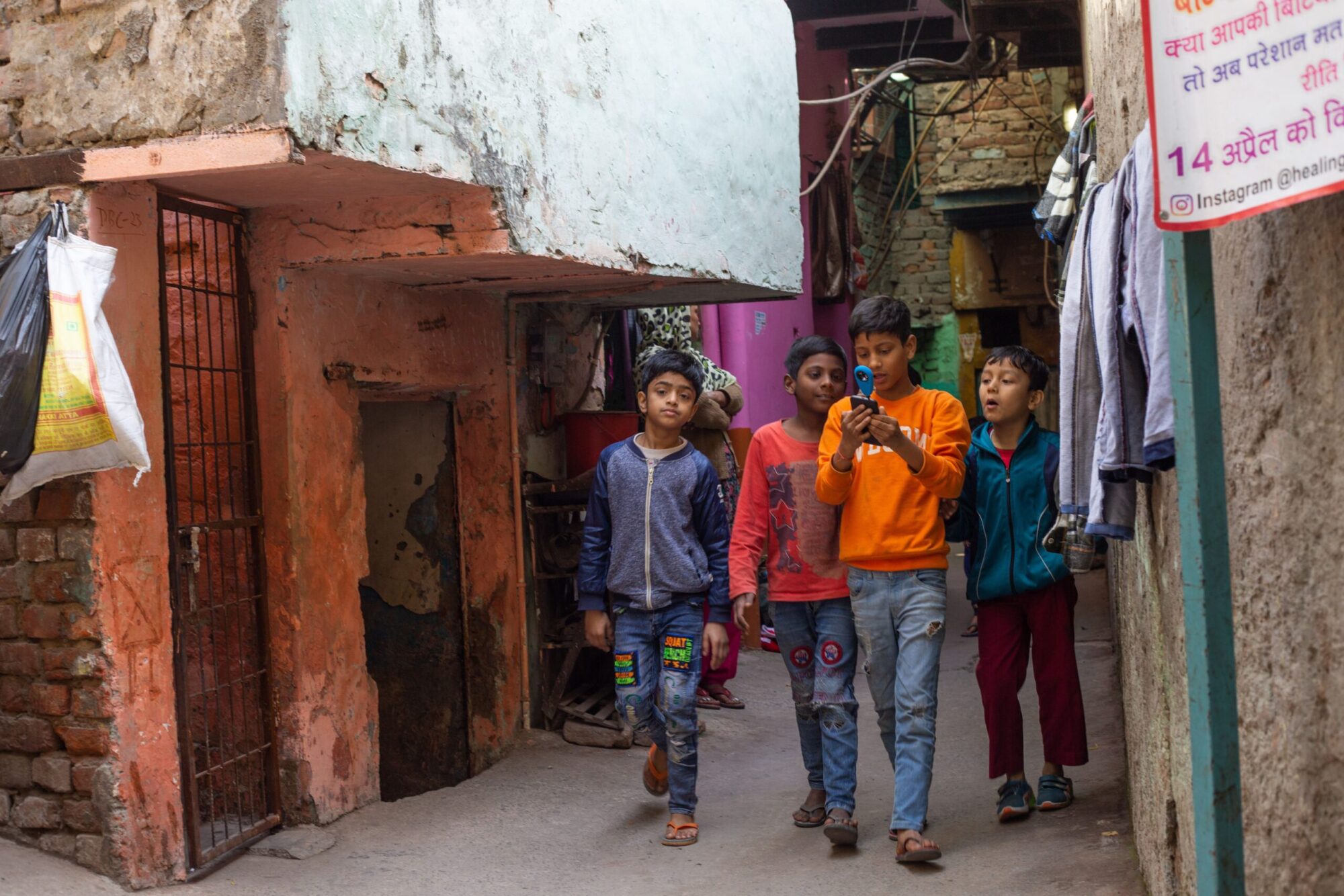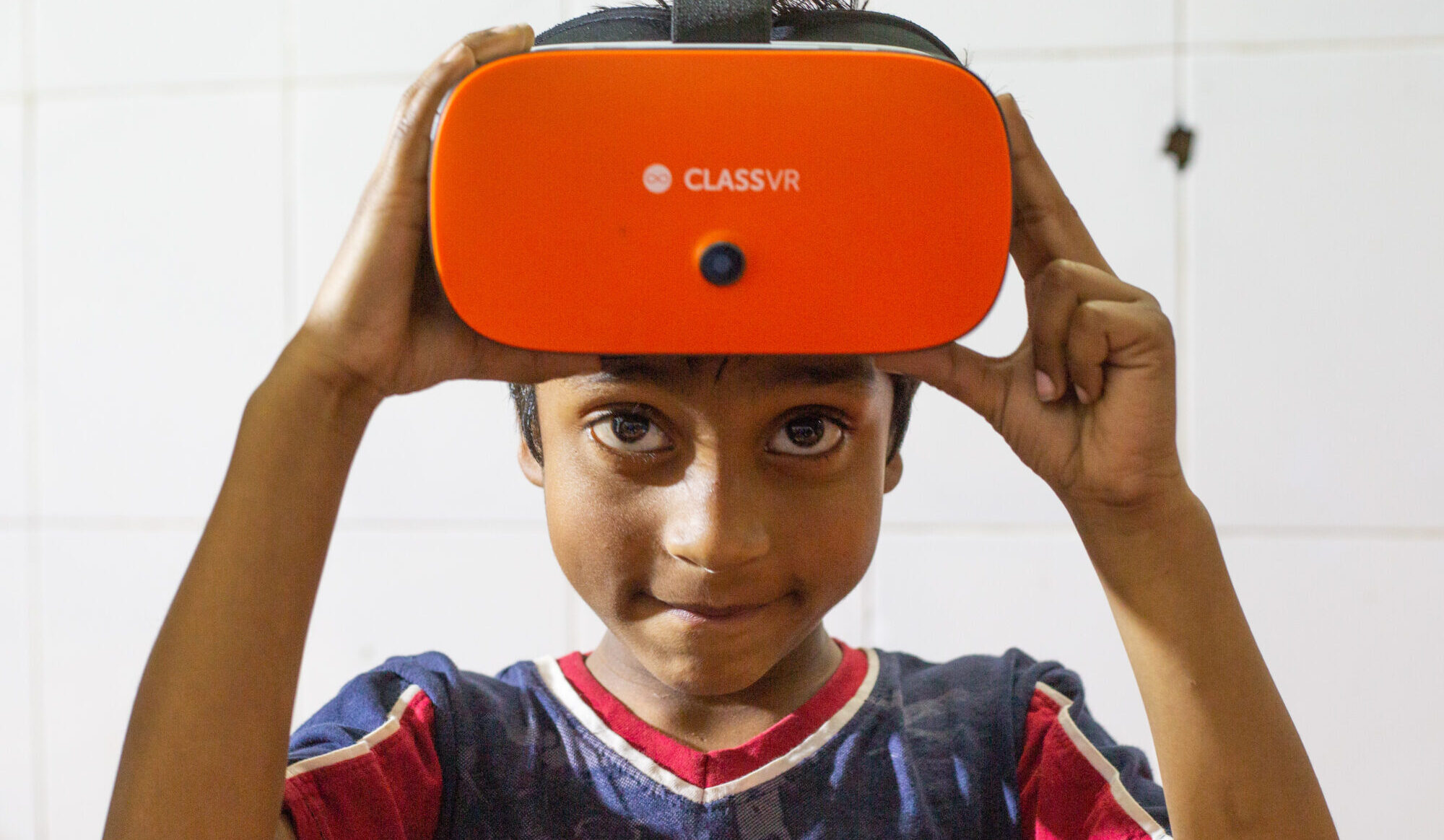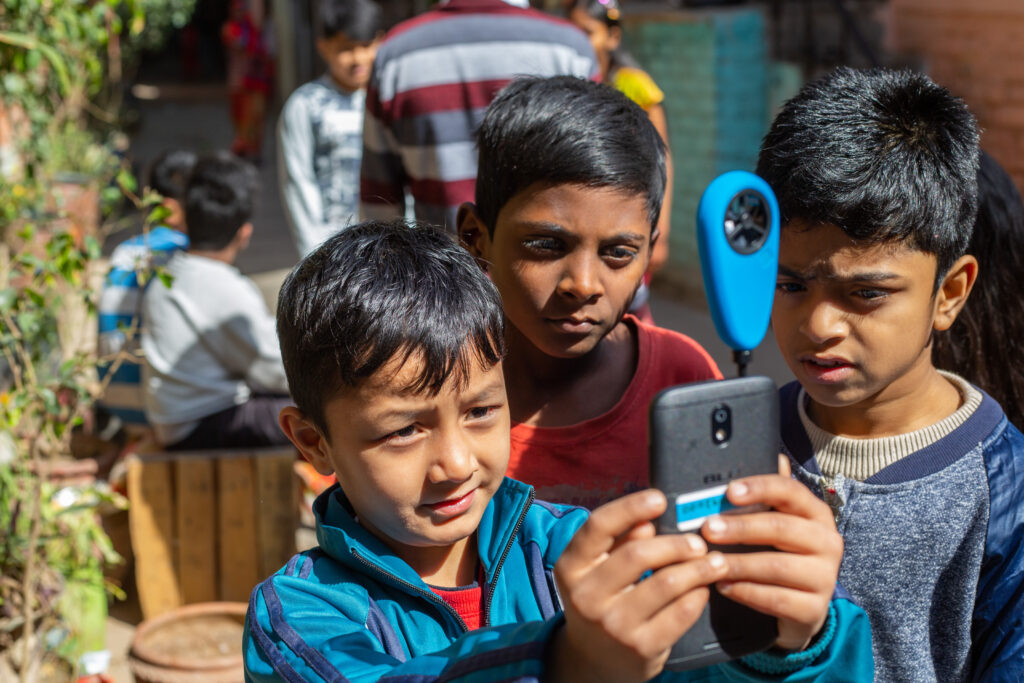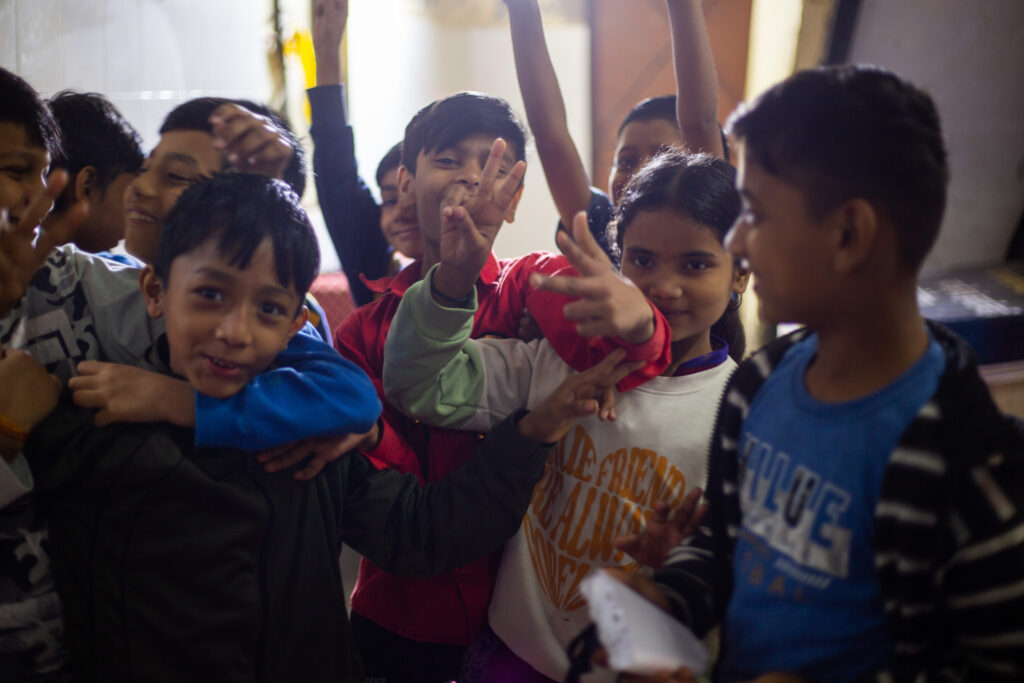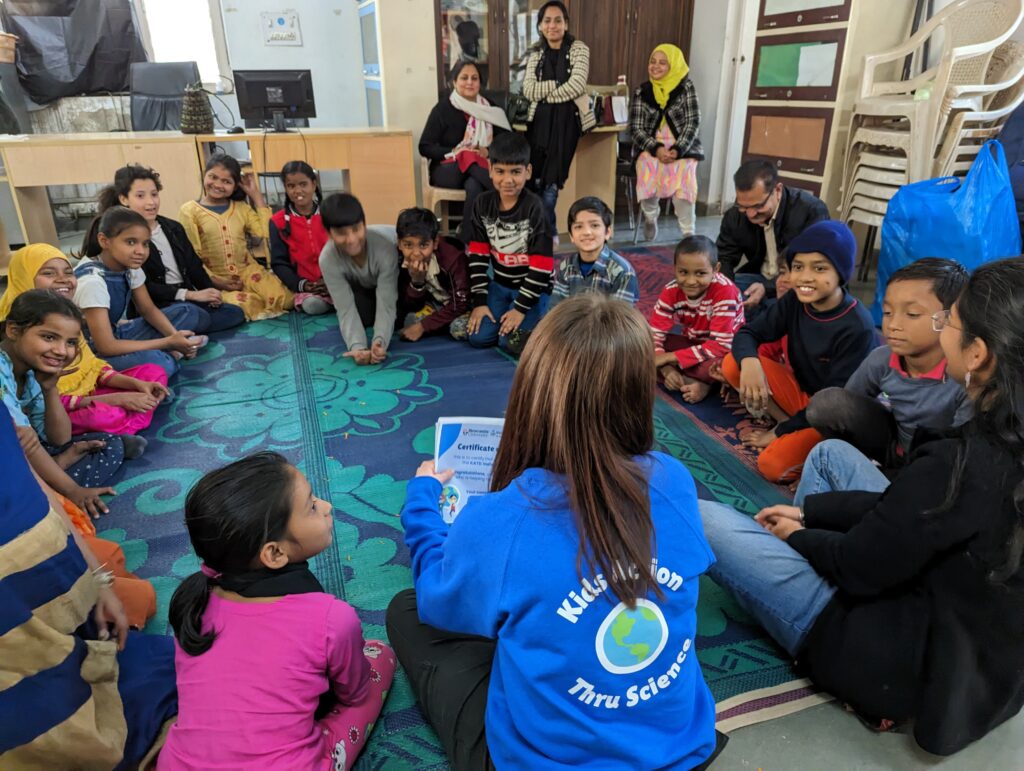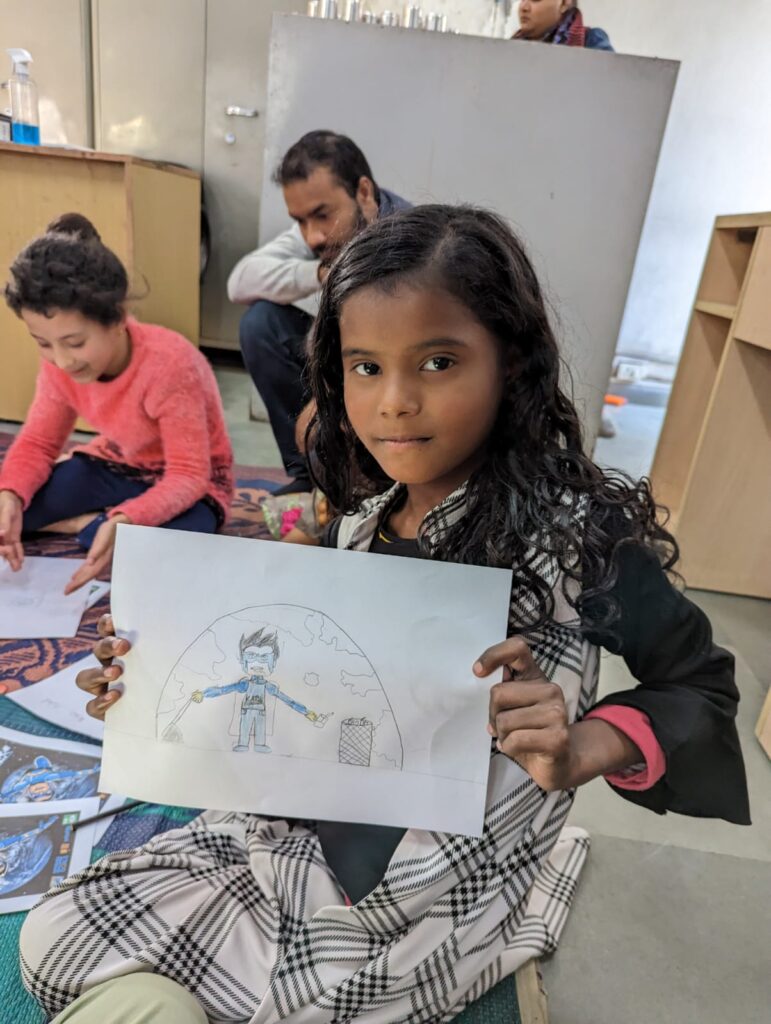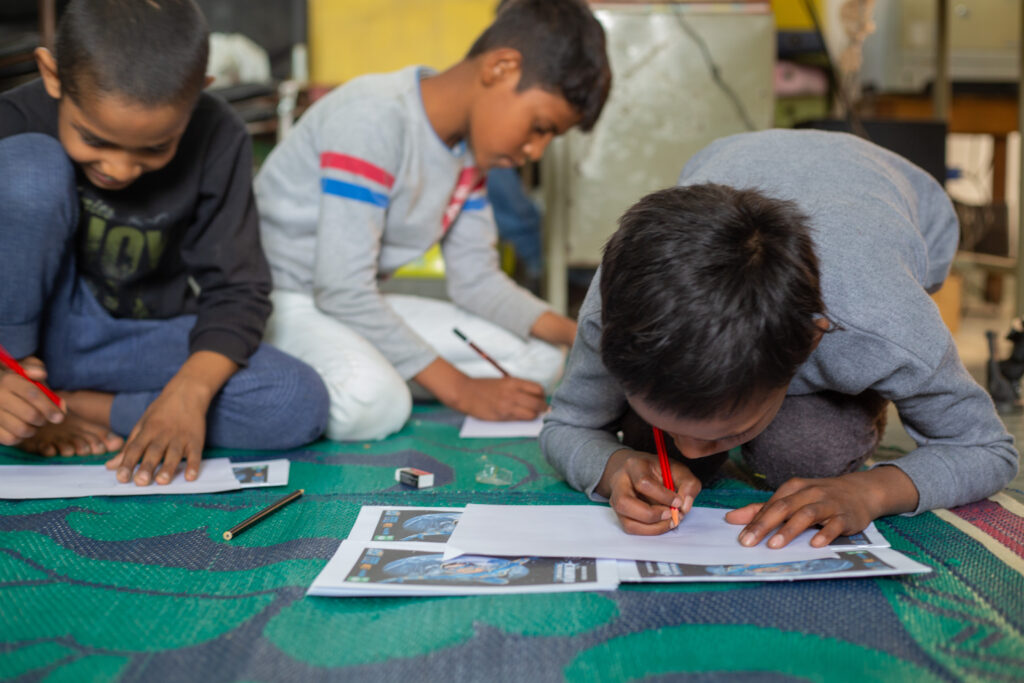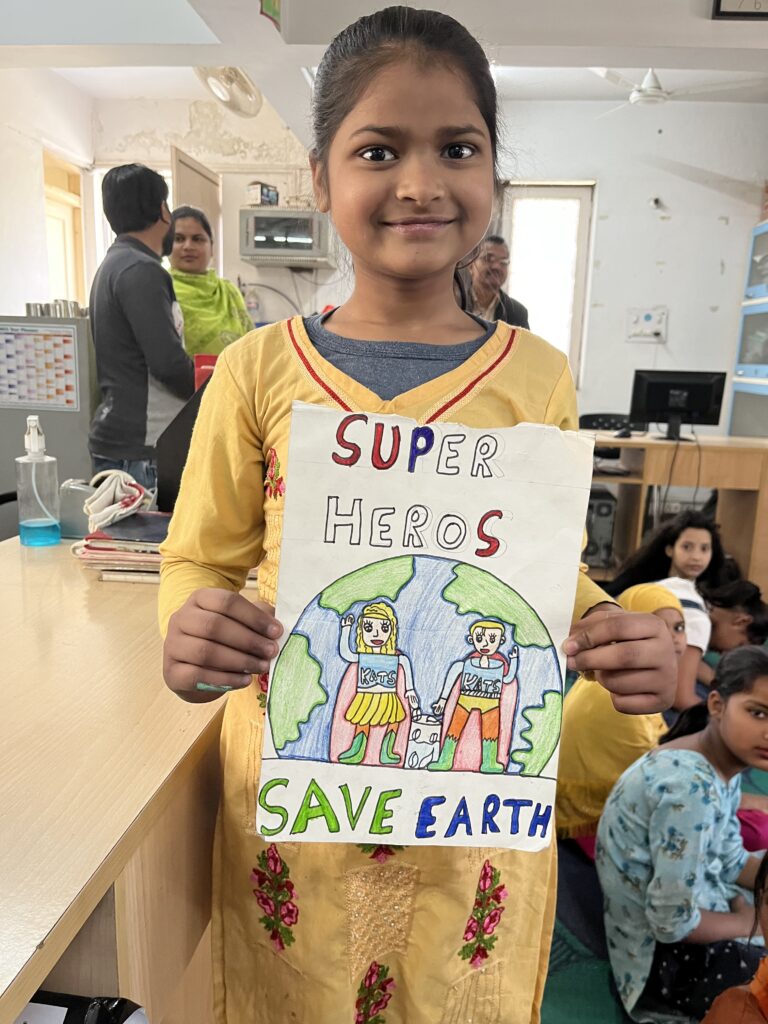Introducing KATS: India
Encouraging children to think critically about the environmental issues affecting their communities and identify how they can protect themselves and others from the harsh impacts of climate change in New Delhi, India.
The Kids Action Thru Science (KATS) project continues its international expansion, this time by reaching New Delhi, India – a megacity of over 20 million people that suffers from inadequate access to safe water supplies, above average PM2.5 air quality levels, and drastic changes in weather patterns. Such environmental issues are found to disproportionately affect the capital’s most vulnerable populations, and have severe socioeconomic and public health implications. Developed in partnership with the Water Security Hub, KATS: India is empowering the next generation to raise awareness of environmental issues within their communities, and collectively take climate action.
KATS goes to India
In February 2023, Elle Young (KATS Lead) delivered the second international KATS programme in New Delhi, India. Working with the Water Security Hub and the Janya Collective, the KATS project was delivered to children from two urban communities, Nizamuddin and Jagdamba Camp, located along the Barapullah Basin, and the Shiv Nadar School in Noida. This version of the KATS project focussed on exploring the relevant environmental issues that impact the children’s communities, such as rising pollution levels and increasing temperatures. Through participation in innovative hands-on activities, the project not only encouraged children to critically think of ways in which they can protect themselves from climate change issues, but empowered them to become citizen scientists, local climate superheroes and climate change experts within their communities.
Citizen Science within the Community
Over the course of the week, Elle visited each location and through active discussions, explored the climate change issues that were relevant to each community. The children actively spoke of the harmful effects of air pollution, caused by dust, industry and transport, as well as water and plastic pollution. Many discussed the emotional experiences tied with the drastic changes in weather patterns, particularly Delhi’s record breaking heatwaves, and the concerns associated with India’s shifting seasons. Similar to their experiences, the children explored how climate change is affecting people and animals around the world using Virtual Reality (VR) goggles. The children started to form connections between local and global, and spoke at length about how human activities, such as throwing away plastics, travelling in cars, and burning firecrackers, can have negative consequences on the world around us.
Joined by Dr. Olivia Ryder from Kids Making Sense, the children ventured out into their local communities and collected data on air quality, as well as temperature, humidity and wind speed using handheld mobile sensors. In groups, they worked together to identify highly polluted areas, collecting PM2.5 data in different locations including along heavily congested roads, the city’s crematorium, dusty areas, and local welding shops. Wind speeds were also collected in order to find out where the particles were spreading. Their data is now uploaded onto the Kids Making Sense ‘Air Quality Data Visualisation Map’, which showcases children’s citizen science data from around the world. Check out the Kids Making Sense blog post that documents these experiments.
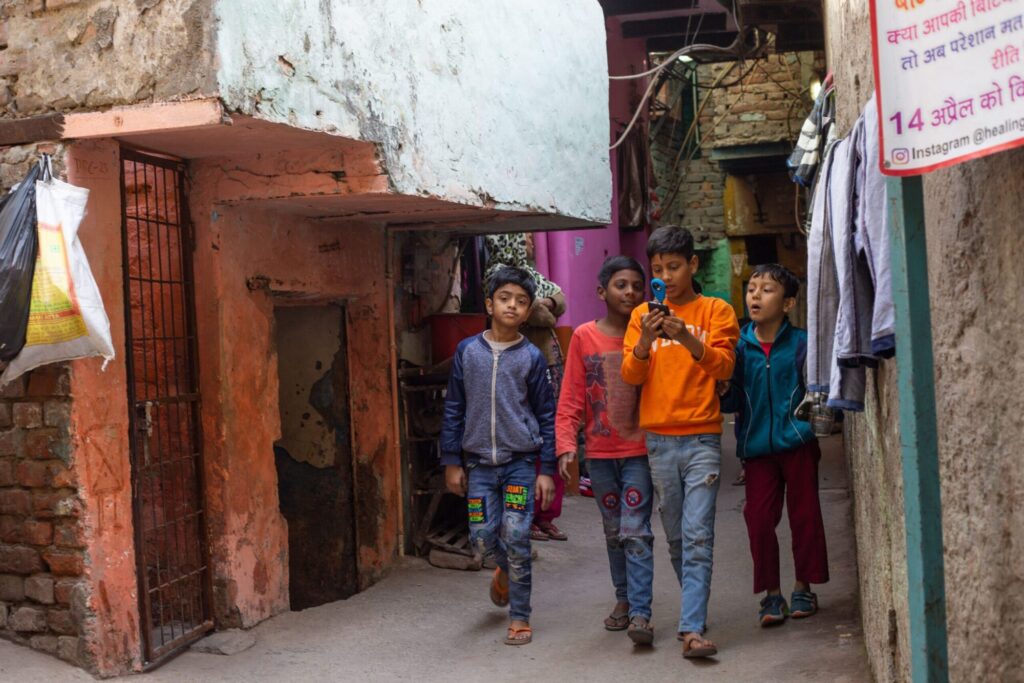
Community Climate Superheroes
The citizen science experiments encouraged children to think critically about ways in which they could protect themselves and others from the effects of climate change. In each location, the children created their own climate superheroes, who by using their knowledge and skills, help to protect their community from harm. Examples of superhero powers included; ‘zapping the plastic pollution out of the water’, conducting ‘science experiments to filter the air pollution’, using ‘spider webs to collect all the rubbish’ and working with other KATS superheroes around the world to combat climate change by combining powers. After the sessions, many couldn’t wait to spread information about what they had learnt in the KATS sessions to their family, friends and community members.
KATS: India has been the second programme (after KATS: Barbados) to be delivered internationally and a critical step in enabling young people to not only spread climate change awareness within their communities, but pass on the international torch of knowledge and mobilise a global network of climate superheroes. The KATS project will continue to be accelerated internationally, empowering young people across the world with the tools to tackle the world’s most pressing environmental issues.
